#covid-19
Detroit Wrapping on Ventilator Production, Returning to Cars
General Motors and Ford Motor Company are about to conclude their prolonged stint of ventilator production. In case you were unaware, these businesses typically manufacturer automobiles (cars, for the layperson) and have allocated a portion of their factory space to build medical equipment that was assumed to be useful during the pandemic. However, the United States now has more ventilators than it knows what to do with, and most of them seem like they won’t be required — so it’s mission accomplished, unless COVID-19 suddenly becomes a much more vicious illness.
Either way, GM and Ford both plan to re-prioritize vehicle production. The Blue Oval moved core staff off ventilator lines and back to their normal places of assembly months ago. Some of the remaining temporary workers hired to assist with the medical equipment are said to have an opportunity building the new Ford Bronco. Meanwhile, GM says it wants to move ventilator production to a facility in Kokomo, Indiana, next month, where it will hand operations over to Ventec Life Systems as it regains the union employs allocated for the project. Temporary hires will be absorbed by Ventec.
AutoNation Ending Aftermarket Collision Parts Division - Shrewd or Crude?
AutoNation’s collision parts division is scheduled to be eliminated by the end of 2020, freeing up some cash after the two-year endeavor proved less than profitable.
Former CEO Cheryl Miller had made it clear that one of her main goals for the company was to ramp up services in an attempt to enhance revenue and diversify the business. But this tactic has proven perilous for the automotive industry at large, often offsetting opportunities to make money with sizable financial risks.
Mobility is probably the best example of this, as its broad enough to encompass everything from self-driving vehicles to subscription models and relies on the market maturing into something that will presumably see returns on investment years down the line. However, AutoNation’s diversification was far more traditional. It seemed like a sure thing, since the collision parts business was forecast to grow over the next five years. In fact, despite being the the largest automotive retailer in the United States, the company actually owes 46 percent of its gross profit to parts and service. Selling cars (both new and used) only accounts for 24 percent — with the rest coming from finance and insurance.
2021 Washington Auto Show Pushed Back to March
The 2021 Washington, D.C. Auto Show has been postponed to buy organizers time to prepare for a virus everyone has known about since the start of 2020.
“We believe this scheduling change is in the best interests of our attendees, our partnering auto manufacturers, and the District of Columbia,” Washington, D.C. Auto Show CEO John O’Donnell said in a release on Friday. “Our top priority is to ensure the safety of all involved in this show, and we believe strongly that a two-month delay will better allow us to produce the type of well-rounded and immersive show that our attendees are accustomed to.”
Originally scheduled to open on January 29th, the motor show will now take place between March 26th and April 4th. That’s assuming the event isn’t outright cancelled, anyway. That’s been the trend for automotive trade shows and most major events since we decided “15 Days to Slow the Spread” would just reset at the end of the second week and COVID-19 became Schrödinger’s Virus thanks to some of the least consistent reporting in modern history.
Ferrari's First PHEV Delayed
You’ll be crushed to learn that Ferrari’s SF90 Stradale has been delayed on account of the pandemic.
By nature of being the brand’s very first plug-in hybrid, the SF90 is incredibly complex. The model relies on a trio of electric motors working in tandem with its turbocharged 4.0-liter V8 to achieve a maximum output of 986 horsepower and 590 lb-ft. Electrification also requires the Stradale to have a small, 7.9 kWh lithium-ion battery, regenerative brakes and a totally new 8-speed transmission.
The grocery list of essential (and novel) items turned out to be problematic as supply chains were disrupted the world over by coronavirus-related lockdowns. Originally scheduled for delivery this summer, the SF90 is being pushed back to the end of the year as Ferrari waits for idled supply chains to catch up. The manufacturer admitted that its own shutdowns haven’t helped it get out the door any faster.
Cox Automotive Cuts Staff, Focuses on 'Digital Services'
Cox Automotive eliminated around 1,600 jobs this month as it prepared to better embrace online commerce (and nobody having any money). The company axed nearly 300 employees in June after having furloughed over 12,000 people in response to the coronavirus pandemic this spring. A large number of those positions were related to its Manheim auction arm, which suffered the hardest due to stringent lockdown protocols that prohibited public gatherings.
Now it’s talking about improving some of the digital features it added to Autotrader this year and embracing the virtual landscape to future-proof itself while forecasting a 25-percent cut in annual profits, and letting people go — with the majority of the layoffs coming to furloughed Manheim employees.
Hertz Given Approval to Dump 200,000 Vehicles ASAP
While negotiating the terms of its bankruptcy with creditors, Hertz has been informed that it can sell 200,000 would-be rental vehicles to help cover its debts.
According to a filing with the U.S. Securities and Exchange Commission (approved Friday in the U.S. Bankruptcy Court in Wilmington, DE), Hertz will be allowed to “dispose of at least 182,521 lease vehicles” between now and the end of 2020. Proceeds will then be used to pay off $650 million it owes lenders, with most funds going toward principal payments on financed vehicles.
With the pandemic knocking out manufacturing for months, this is likely welcome news for buyers eyeballing the secondhand market. Dealer lots are light on fresh product at present and times are getting tougher for consumers, making used vehicles all the more appetizing. Even though former rentals have a tenancy to be abused, they typically to go for a bit less than something living a more carefree existence — and Hertz will be desperate to offload them quickly.
Maybe Next Year: Volvo Pushes Back Sales Targets to 2021
Volvo Cars will be unable to reach its global volume target of 800,000 vehicles this year. Considering everything that has — or hasn’t — happened in 2020, any automaker that ends the period moving more metal than they did in 2019 should probably have a statue erected in front of their headquarters celebrating a major industrial achievement.
Volvo sold 705,452 units the last time our Earth went around the sun, forcing it to face the music when considering goals in what CEO Håkan Samuelsson calls the “corona year.”
Swift Economic Recovery in GM CEO'S Crystal Ball
General Motors CEO Mary Barra predicted a brief recession and streamlined economic recovery in a recent interview. Mixed in with favorable coverage of how the company saved Michigan’s Governor Gretchen Whitmer by manufacturing personal protective equipment intended to combat the pandemic, the Detroit Free Press took time out to get Barra’s expert opinion on various subjects.
She mused that a 300-mile range will be the sweet spot for GM’s electric vehicles, noting that the company may eventually offer distances in excess of that with its new Ultium platform, and touted the merits of the Inclusion Advisory Board she recently placed herself at the head of. Things began to get more substantive when she attempted to predict how long the economy would languish as a result of COVID-19 lockdowns
Uber Offering COVID-19 Contract Tracing Data to Government Entities
Uber Technologies Inc. has kicked off a new service that provides public health officials immediate access to data on drivers and riders who may have been in contact with someone infected with COVID-19. Weirdly, the company decided against announcing the sharing of your whereabouts with the government with any fanfare. Perhaps they thought average people wouldn’t be interested, or maybe that broadcasting their own participatory role in crafting a nightmare dystopia could be bad for business.
Then again, maybe this is exactly the kind of mass surveillance we need to flatten the curve, stop the spread, or whatever slogan is currently the trendiest. Worried? Don’t be. Uber said this service will be offered free of charge, meaning you don’t even have to spend any additional money to have your information shared.
What a sweet deal!
Lyft to Issue Partitions to Some Drivers; Company Sued Along With Uber in Massachusetts
You may not have noticed this, but there’s a lot of people wearing masks right now. These individuals aren’t working with drywall or sanding anything, either. You can spot them shopping, walking, or crowded around these new outdoor drinking areas located downtown that force them to huddle together while you attempt to squeeze by — coughing politely to make your intentions known.
After repeatedly Googling “What’s Going On Outside?” it was eventually revealed to your author by a helpful neighbor that there’s some kind of mystery illness nobody knows anything about. They continued explaining, but I had already stopped listening. This new information had me shocked to the core.
All I could think about was how this was going to impact Lyft drivers.
Surely the company has some kind of plan to protect its workforce and make sure they’re not riddled with blood-borne parasites or whatever. Well, we seem to be in luck. On Friday, Lyft said it will distribute around 60,000 vehicle partitions to its busiest drivers as way to protect against the coronavirus while selling customized protective shields to other drivers through the remainder of the summer.
Nissan Predicts Incredibly Lean Year, Plans Accordingly
Nissan’s all-important turnaround has been complicated immensely by the coronavirus pandemic. Supply chains fell into in shambles as countless factories temporarily closed as a countermeasure, harming profits as demand came to a screeching halt. Now there’s a looming recession that many economists fear may surpass the Great Depression — though this was a concern years before the COVID response hit the accelerator, thanks to growing debt and the way finance has been allowed to operate for decades.
Seeing the writing on the wall, many automakers have tamped down expectations for 2020. Being in the peculiar position of restructuring before the pandemic hit — which isn’t all that unique within the industry, truth be told — Nissan is reportedly plotting a 30 percent year-on-year cut in global production.
At Home Forever: Automakers Consider New Ways of Working
Ford Employees Housebound Until September
On Wednesday, Ford Motor Co. offered some clarity to salaried workers wondering just how much longer they’ll have to work from home. If you happen to be one of those individuals and missed the official announcement, we’d kindly ask you to take a seat and find something to bite down on so you don’t end up hurting yourself.
Citing ongoing safety concerns tied to the coronavirus pandemic, Ford has decided to keep salaried employees home until at least September — tacking an extra two months onto its earlier prediction.
AutoNation Cutting Roughly 3,500 Jobs
After furloughing staff in response to the coronavirus pandemic, AutoNation has gradually allowed employees to return back to work. Half of the 7,000 people asked to take it easy in April won’t be coming back at all, however.
The automotive retailer has decided to permanently cut 3,500 jobs so it can focus on its bottom line and what it has unsettlingly called “the new normal” — a term frequently used to rationalize unsavory actions taken during the health crisis.
With customers unable to leave their homes to purchase cars, it’s to be expected that America’s largest automotive retailer would need to engage in some light restructuring. It also happens to have the best excuse imaginable for nuking a large portion of its workforce. Back in April, when the AutoNation was furloughing employees, it received nearly $95 million in federal small-business funds via the Payment Protection Program (PPP). A subset of anonymous staff members were said to have leaked the details to the media after deciding the firm was taking cash allocated for smaller outfits.
Outrage ensued and the company sheepishly returned the money.
GM CEO Says Pandemic Helped Cut Costs; Decontenting Incoming
On Tuesday, General Motors CEO Mary Barra suggested her company would exit the other side of the coronavirus pandemic running much leaner than when it went in. While this will probably be the case for other automakers, as many (including General Motors) went into 2020 with restructuring efforts planned or already underway, GM is letting everyone know it’s doing cuts extra right.
This likely has to do with the automaker not wanting to look as though it’s in for a repeat of 2008, now that the global economy’s once again careening toward troubled times — but we’re just guessing. It also seems as though the extreme lack of industrial progress created by months of factory shutdowns has forced executives to fill the void with a lot of hot air. Fortunately, Barra’s message wasn’t totally devoid of useful information.



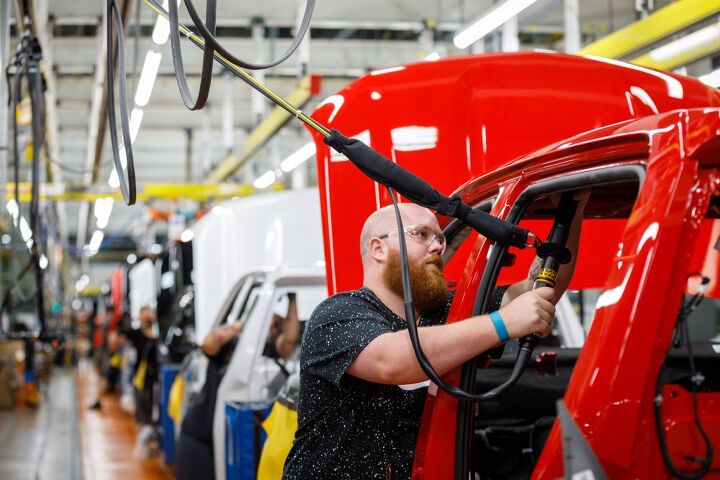

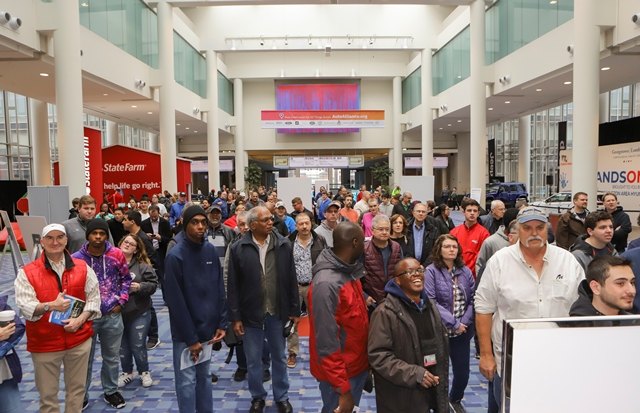

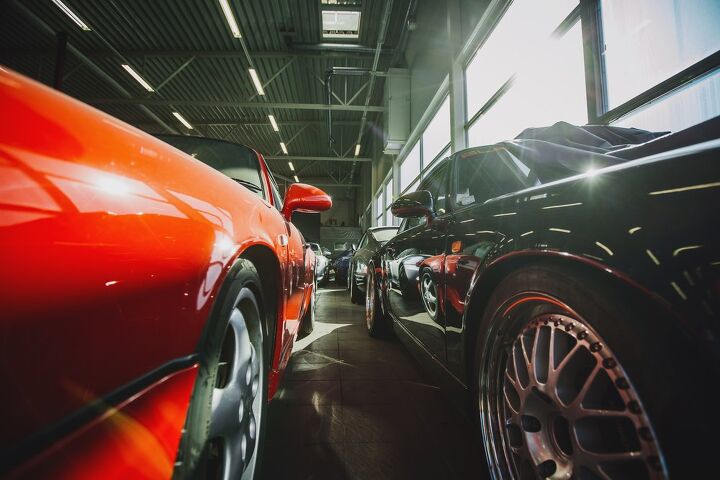


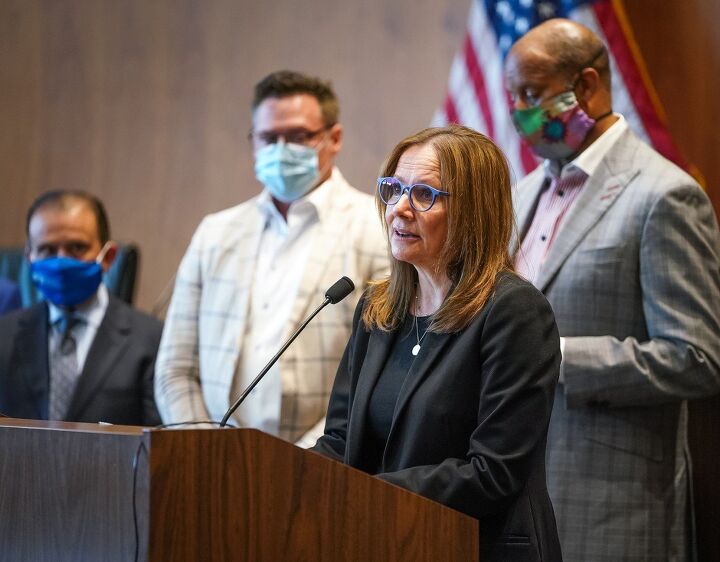




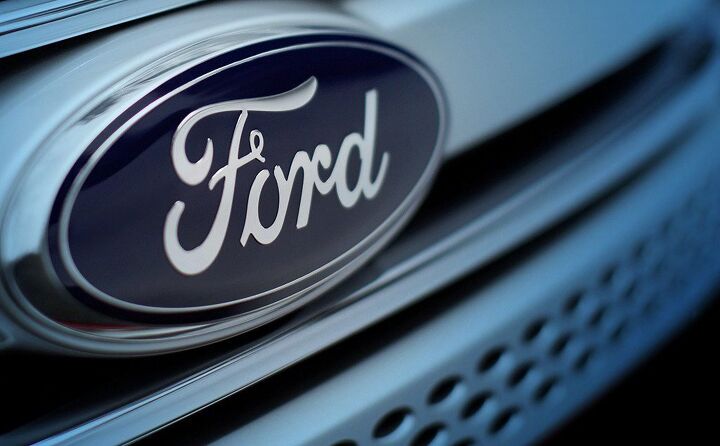














Recent Comments